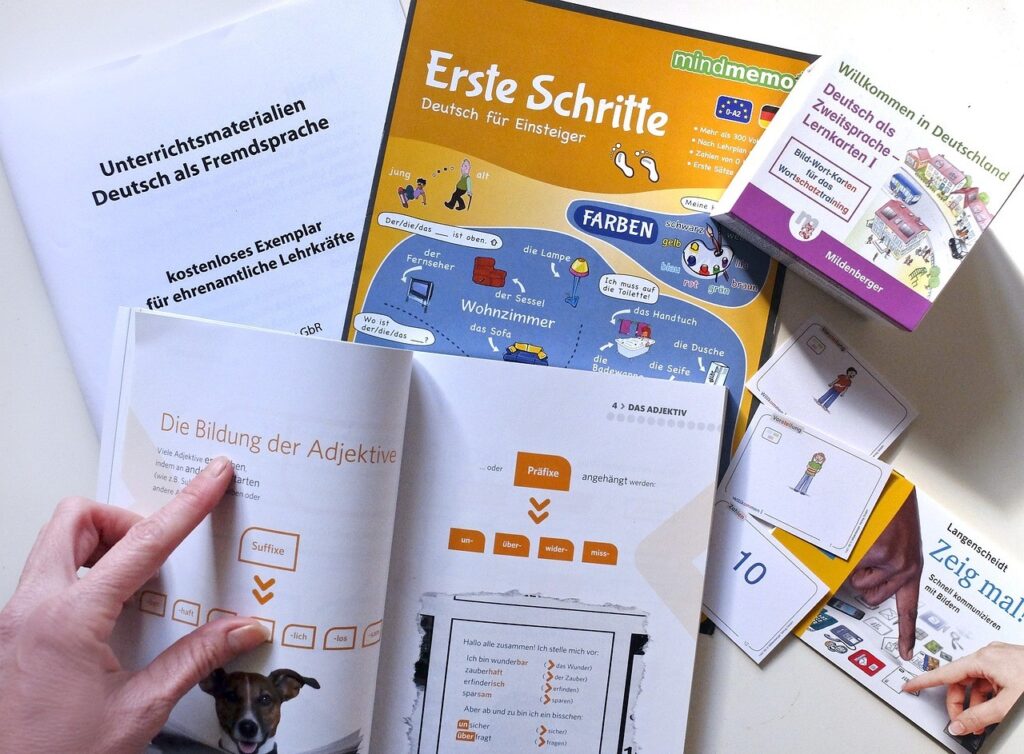Disclaimer: The following is based on my experiences. It will neither serve as legal council of any sort nor will it be extensive nor completely up to date. The intention to write this blog article is that many internationals seeking work in Germany get in touch with me and face the same challenges. I try to answer these questions individually, but maybe it is more interesting to other people as well.
Germany is (2023) the 4th largest economy in the world. Nice cars, clean environments, decent salaries, good healthcare, personal freedom – there are many reasons why people might want to come here, no matter if these are facts or just clichés and personal wishes. However, this article won’t focus much on whether the facts match the personal expectations (this will be another blog article if I find the time, plus, for this I should get in touch with some internationals working here to cover their experience).
So, let’s say you’re a person willing to work in Germany, but you are still in your country of origin. You are probably active on LinkedIn, and you hold a university degree of some sort. Most people contacting me are from the field of IT, electronics, mechanical engineering or marketing. Since I’m working for companies from these branches, this comes as no surprise.
Being on LinkedIn, you notice a lot of open positions in these fields in Germany. Or maybe you focused on Germany as a next-place-to-live because you just like the country and its culture etc.
But how the heck can you get one of these jobs? Being a headhunter, I’d turn this the other way and talk about the 2 main obstacles that arise time and again.
1. Language

The companies I work for are small and medium-sized companies from Saxony, Saxony-Anhalt, Thuringia. This means in a nutshell that nearly nobody is willing to speak English. No matter whether they are able to use English or not, most people just don’t want to use it on a day-to-day basis at work, and I’m not just talking about electronics, but IT as well, although the devs are more familiar with it. Main reason here is that it is way too much work to translate everything, from meetings to coffee-machine jokes. So, the very very minimum is language level B1. However, be advised: B1 is not enough to get along in a working environment. I say this as a former teacher for German as a second language. B1 enables you to buy your buns in style, but it won’t help you through a phone call with a customer that did not understand your reply to his ticket. It would be good if you have at least B2.
So, the point is: no language, no job, at least with my clients. There are exceptions, and the big corporations might be different, but as far as SMEs go, I’d say German is a must.
What do to: Start learning German right away, it is difficult and takes time to learn. Get some language app like Duolingo (https://duolingo.com/) and start to practice NOW. Really, I mean it. Next step might be to attend language classes at either Goethe-Institut (https://www.goethe.de/de/wwt.html) or a private language school in your vicinity. There is also Deutsche Welle, which offers free language courses (https://learngerman.dw.com/en/learn-german/s-9528). I’d say one is able to reach level B1 within 6-9 months, depending on time available and own ability to grasp new languages. Personal record: I saw Chinese students working from zero to C1 within 9 months, however, they worked full-time on it, 8 hours per day plus individual learning time)
2. Visa – some serious paperwork

German employers want to meet people in person before they hire them. I’m sorry to say so, but this is my experience from more than 10 years working in the field. An online-meeting via Teams or Zoom doesn’t change this, I’m afraid. And here comes Catch-22: If you don’t have a contract, how are the chances that the German embassy in your country will give you a visa? Seriously, I don’t know, and there will be differences between embassies in different countries and even differences between individual staff maybe. However, my impression is that obtaining a visa is some serious paperwork, costs some money and takes quite a lot of time. In some countries it might even be the question if they let you get out or not… Anyway, check the visa requirements here (chose your language at the top right corner): https://www.auswaertiges-amt.de/de/service/visa-und-aufenthalt/visabestimmungen-allgemein
But even if you don’t have a valid job offer from a German company, you can apply for a visa just to look for a job, to do interviews in Germany and so on, but – do you have the money for that? If so, are you willing to risk spending it without a guarantee that you get a job? Plus, going to Germany looking for a job will not just put your language skills to a test, it is also a challenge for your schedule, since you want to have not just one job interview while you’re in Germany.
Another way might be to go for a student visa and do a Master’s degree at a German university first. https://www.study-in-germany.de/en/ Here you could enroll at a course that is held in English if your German is not good enough yet. You could use the time to get acquainted with Germany and its inhabitants, practice the lingo and polish your skills at the same time. Plus, you can use the time to work as a student or do an internship, thus building your career network in German companies.
I know that taking two more years to study again is quite a setback. However, it is a proven way to get into the German job market.
Conclusion
I’m sure these few lines can’t cover even superficially the 2 topics I murdered here. So, if you have any comments, hints or stuff that should be included as well, pls get in touch with me via LinkedIn (https://www.linkedin.com/) or via this website: https://sachsentalent.de/kontakt/
